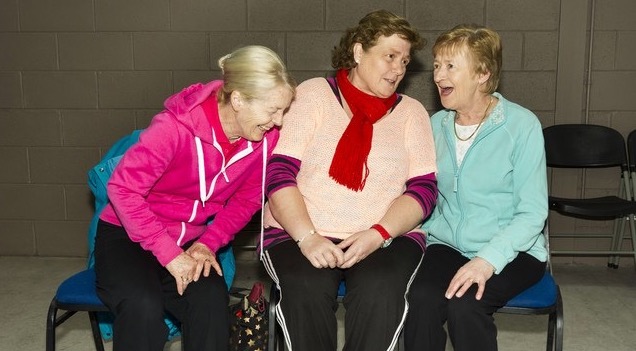Why is exercise so important for breast cancer survivors?
October is Breast Cancer Awareness month and we want you and your loved ones to be breast aware. Breast cancer is the second most common cancer in women in Ireland, after skin cancer. It also has one of the highest rates of fatalities caused by cancer in women, second to lung cancer. Every year there are around 3,244 cases diagnosed in Ireland and 723 women die from the disease. For further break down, 1 in 9 Irish women will develop breast cancer and 1 in 1000 Irish males in their lifetimes.
Most of the women diagnosed with breast cancer are over 50 years old. However, one can be diagnosed at a younger age. In fact, 15% of women that are diagnosed are between 20 and 40 years old. Another 49% are diagnosed between 45-65 years old. The remaining 36% are diagnosed over the age of 65. It is important that you encourage the woman in your life to be aware of changes in their breasts and get mammograms as frequently as their doctors suggest.
The awareness of breast cancer and breast screenings in Ireland during recent years has increased the survival rate to 85% and decreased the mortality rate of breast cancer patients by 2%. These numbers are improvements from the past, but can be better. In combination with breast screenings and awareness, one can reduce the risk of developing breast cancer by diet, exercise, and control of alcohol consumption. Specifically, many studies have shown that an increase in exercising decreases one’s risk of developing breast cancer.
It is important that you and your loved ones take preventative action, but it is also important to support others and take care of yourself if you are diagnosed with breast cancer. Simple things, such as offering a humorous distraction or letting them know you are there for them, can help immensely.
After women have finished treatment, it is essential that they are active in keeping the cancer away. The American Cancer Society recognises physical activity is vital to breast cancer survivors as increased activity can reduce cancer reoccurrence rates as well as increase survival rates. The American College of Sports Medicine researched the connection between breast cancer and exercise, and concluded that exercise is safe during and after all breast cancer treatments. However, one must take any needed precautions and keep the intensity low for practicing safety is necessary. The exercises you did prior to being diagnosed may not be the ones you should be doing post-treatment. The many benefits of exercise are improvements of physical functioning, quality of life, and cancer-related fatigue and depression. It also helps to strengthen muscles, lessens the risk bones will weaken, controls weight, and improves balance. Nutrition is also a huge component of feeling better after treatment. Proper eating habits have been shown to positively impact survivor’s health and improve their quality of life.
Here at Siel Bleu, we are aware of the benefits exercise can provide for survivors. This is why we developed the 14-week Empower! Programme. It was designed in partnership with the Irish Cancer Society and funded by Nutricia. It includes exercise and nutritional workshops to keep women fit after they’ve finished breast cancer treatment. The programme is being piloted in Dublin-South, Dublin-West, Kildare and Wicklow. We hope to have the results of the programme around January and look forward to sharing them with you!
***Disclaimer: The information in this post is for reference only and is not intended to be a substitute for medical expertise or advice. If you have any concerns about your own or another’s health then please contact your doctor.
Sources:
https://www.drinkaware.ie/latest/breast-cancer-awareness-month-2019-take-action-to-reduce-cancer-risk gclid=Cj0KCQjwl8XtBRDAARIsAKfwtxCs05mZkcyrDjtHamyg19MxGTk9wy6WWVC0oARmHVzgoryluDI8VSIaAknuEALw_wcB
https://www.cancer.org/latest-news/get-moving-to-help-reduce-your-risk-of-breast-cancer.html
https://breastcancernow.org/information-support/facing-breast-cancer/living-beyond-breast-cancer/your-body/exercise-breast-cancer
https://www.breastcancer.org/tips/exercise


